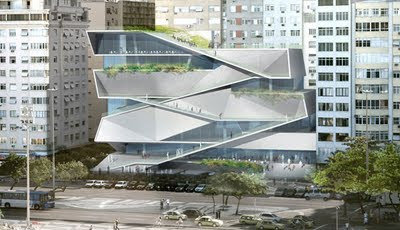Copacabana, the beach district in Rio best known for being home of the Copacabana Palace (Copa to the locals), has seen better days.
The Copa, however, remains a landmark. Remarkably, despite being outside of the glam Ipanema-Leblon circut, the Copa - founded in 1923 by the Guinle family and a veritable landmark - still hosts some of the most spectacular weddings and parties of Rio’s high society in its grand salons. In fact, several hundred well-heeled cariocas even pay a yearly fee to have access to the pool, spa and tennis court, as if it were their own private club.
But that has not stopped the decline of the neighbourhood as a whole, sadly...
The Copacabana glorified in song and film has long become the hooker-and-pickpocket territory, while the well-to-do favour glitzier and safer Ipanema and Leblon.
As the Financial Times recently put it, the bars on beachfront promenade are " the kind of place where female prostitutes, who represent most of the visible clientele, know the waiters by name, and vice-versa.
Nearby looms Copacabana’s defunct Meridien hotel, an unlovely concrete tower, which, as a measure of things, recently came close to being transformed into the world’s first skyscraper bordello. Across the street is La Cicciolina, a nightclub named after the Hungarian-born former porn star Ilona Staller.
It is a sleazy part of town (...), although sometimes the odd tourist couple can be seen there, seated haplessly among the prostitutes and the dissolute regulars, earnestly examining their menus and looking a little scared. Like most cities, Rio is all about knowing where to go and where not to go.
Copacabana faded from fashion not long after Barry Manilow consecrated it with that tacky 1978 disco hit showtune “Copa-Caah-baaana”.
Well, La Cicciolina is still going strong, but another sleazy nightclub favoured by ladies of the night is officially kaput. Help, a big black box that sat as an eyesore right on the seaside promenade, has been torn down to make way for a new museum if image and sound, the Museu da Imagem e do Som.
Who drew up the winning project? None other than famed architecture firm Diller Scofidio + Renfro. To me, the project looks strikingly beautiful, and I love the way the ramps that cover the façade reference Rio's signature wavy/ziz-zag cobbled sidewalks.
Copacabana Palace: Um hotel e sua historia (Portuguese Edition)



































